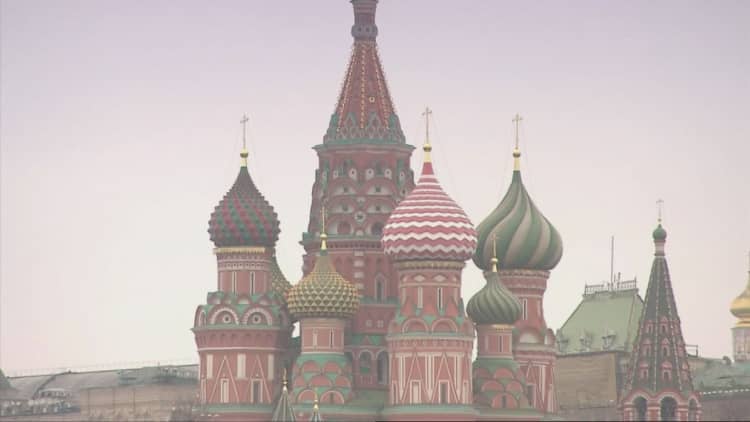
Russia's recession has been shallower than expected, the International Monetary Fund (IMF) said in its latest economic report on the country, and the economy is expected to return to growth next year - unless oil prices take a further tumble.
"Lower oil prices and needed fiscal adjustment will keep the economy in recession in 2016 with an expected decline in real GDP of 1.2 percent," the IMF said in report on Russia's economic outlook. "(But) growth is expected to resume in 2017 and reach 1 percent, as domestic demand slowly recovers on the back of easing financial conditions and pent up demand."
Russia's economy contracted by 3.7 percent in 2015 due to falling oil prices and international sanctions that limited Russia's access to international financial markets.
Sanctions were imposed on Russia after its annexation of Crimea in 2014 and role in a pro-Russian uprising in east Ukraine and are continuing as the country is not deemed to be upholding its part of a ceasefire agreement in Ukraine.
The combination of falling oil prices and sanctions hit Russia hard, causing capital flight and a sharp drop in the ruble which only served to drive up inflation, hurting many Russian households.
Still, the IMF said that the steps taken by Russia to mitigate the crisis had helped to lessen the impact of recession.
"The economic contraction is nonetheless shallower than previous recessions as a stronger external position and the authorities' economic package — a flexible exchange rate regime, banking sector capital and liquidity injections, limited fiscal stimulus, and regulatory forbearance — cushioned the shocks, helped restore confidence and stabilized the financial system," the IMF said.
Russia relies on oil exports for much of its wealth although the Kremlin has repeatedly called for the diversification of the economy to quicken pace. The IMF said that growth was unlikely to be robust despite the recovery with oil prices still the main contributor to – and possible detractor from – the economy.
"With adverse demographics, and barring significant structural reforms that increase productivity growth, potential growth is likely to be at around 1½ percent over the medium term. A fall in oil prices is the main risk to the outlook."
In its recommendations, the IMF's executive board encouraged Russia to "adjust to the challenge of persistently lower oil prices by reducing its dependence on oil and energy exports over the medium term." Directors also noted that Russia had the opportunity to diversify its economy as a result of a more competitive exchange rate.
Another byproduct of Russia's economic crisis has been high inflation. The country's central bank has maintained high interest rates in a bid to combat high prices - despite some political pressure to lower rates in order to stimulate the economy – and the inflation rate has been steadily declining.
In June, inflation stood at 7.5 percent and the key interest rate at 1–0.5 percent. Although the inflation rate is still some way off the bank's 4 percent target for 2017, the IMF's directors commended Russia's authorities for implementing policies that were helpful in bringing down inflation and said it was on the right course to normalize monetary policy.
"Given the negative output gap and little evidence of demand-side pressures, they considered that monetary policy normalization would be appropriate. However, they cautioned that the pace of easing should be gradual, given past strong links between volatile oil prices, the exchange rate, and inflation."


